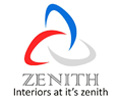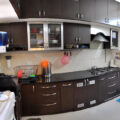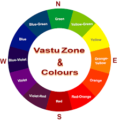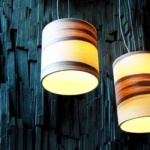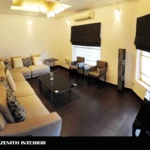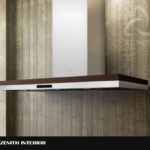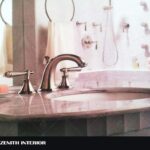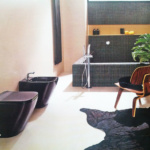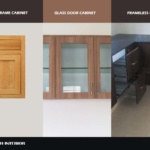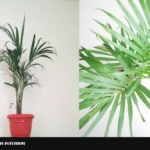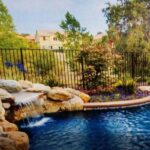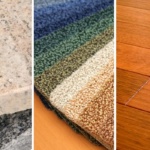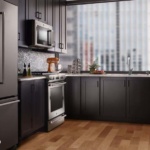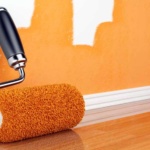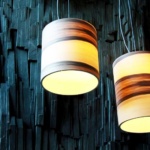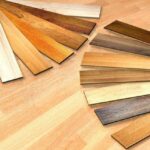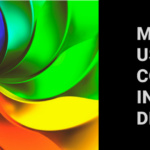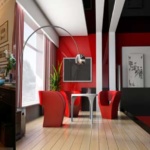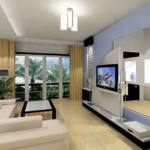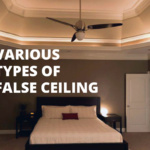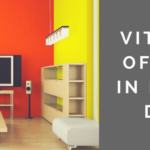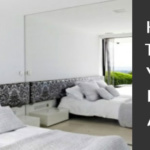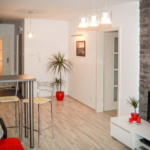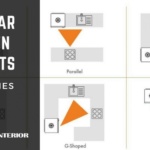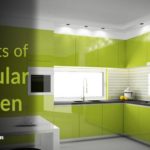Types of Flooring Available In India
Choosing the right flooring material is another time where people spend a lot of time thinking over it. Budget, personal tastes and requirements, architectural style and weather etc. are the major factors determining the type of flooring for a house. A detailed descriptions along with merits and demerits of different types of flooring available in India would help you to make an informed decision quickly.
Marble
Pros
- Natural Stone
- Elegant and timeless material
- Durable
- Value for money
Cons
- Expensive
- High installation cost
- Cold
- Porous Material
- Require polishing in every 4-5 years
Although it is expensive and has its own demerits, marble is the most popular flooring in India. It is a timeless and graceful material for flooring and historically, marbles were used for luxury houses. The famous Taj Mahal of Agra is completely built on Marble.
Marble is a hard stone and found in nature. It is durable and scratch resistant. This material is available in various colors including white, gray, brown and other natural colors. A glossy finishing can be achieved by polishing the marble or you can choose rustic and matte textures.
Marble is a porous material which would absorb water. It is prone to gradual staining and it may become yellowish after a long time if it is not polished. Moreover, things like alkali and acids can damage the marble. This is stone and it will be very cold in winters and monsoon. For this reason, marble may not be a good option for the houses situated in locations where the temperature may go down drastically. Another disadvantage of would be its installation of marble would cost you very high.
Since marble is natural stone, elderly people won’t have to worry about the deceases like rheumatism if the flooring is done with marble.
Vitrified Tiles
Pros
- Affordable Rates
- Variety of Designs
- Quick Installation and Low Labor Cost
- Water Proof
Cons
- Not elegant like Marble
These tiles are made mixing different materials including clay, quartz and silica. Materials are baked at high temperature and make it like a hard stone with a glossy finish on the top. Since it is man-made, vitrified tiles are available in virtually any pattern and color.
Vitrified tiles can have the appearance of any flooring materials including marble, granite, hardwood or bamboo. You will get tiles matching your interior decoration requirements. Vitrified tiles can be installed quickly which reduces the labor cost.
Vinyl Flooring
Pros
- Less expensive
- Easy to Install
- Water resistant
- Less noisy
Cons
- Direct sunlight fades the color
- Extreme temperature may damage the flooring
- Sharp object may damage the tile
Vinyl is available as sheets and tiles and can be used to replicate the look of stones or wood. This is durable and water resistant. The top layer of vinyl prevents it from wear-tear and scratches. Some manufacturers offer 15-20 years of warranty if the top layer gets damaged due to wear. The biggest the advantage of this material is its relatively modest cost. Moreover, the noise will be less when somebody walks on the floor or something falls onto it.
Vinyl tiles cannot be installed on the floor with imperfections or flaws in the level and it needs a smooth and leveled surface. Although vinyl is durable, sharp objects can damage the flooring. Moreover, direct sunlight or extreme temperature may damage or fade the color of the vinyl flooring.
Hardwood
Pros
- Natural
- Value for money
Cons
- Expensive
- Require polishing ever 3-4 years
- Noisy
The organic nature of hardwood makes it extremely health-friendly. It has the real warmth of wood and it would be best for walking with naked foots and comfortable for babies to play on. This flooring is very popular in Europe and North America. The hardwood planks are easy to install and easy to clean. They can be cleaned by vacuuming and mopping. The dirt stains and dust can be easily wiped off.
Hardwood flooring is the best for allergic people and it is the most recommended flooring by doctors across the world.
Hardwood materials are costly and require huge labor cost for both installation and polishing. The material is little noise than vinyl flooring.
Granite
Pros
- Natural stone
- Less porous than marble
- Less installation cost than marble
- Less prone to damage due to acid
Cons
- Installation cost is higher compared to vinyl and vitrified tiles
- Harder than Marble
- Slippery due to hard and polished surface
If the marble is the king, granite is the queen. It is an alternative for marbles since this is also a natural stone. However, unlike marbles granite doesn’t require regular polishing or maintenance. Although granite doesn’t have the elegance of marble, it can add a value to your home. Granite is the best option if you want black or dark flooring in your house.
Although the cost of marble and granite are similar, the installation expense is less for granite. Moreover, granite is less water absorbent than marbles. Granite is also a stone like marble and it will be cold in the monsoon and winter seasons and it would be uncomforting in the cold climate area.
Bamboo Flooring
Pros
- Easy to clean
- Value for money
Cons
- Water absorbent
- Expensive
- Require refinishing
- Prone to scratches
Bamboo flooring is similar to hardwood flooring and it is natural. It is trendy and can enhance the elegance of the interior. Bamboo flooring would be most eco-friendly with different kind flooring because the bamboos are renewable and grow faster than trees out of which hardwood flooring tiles are made.
Just like the hardwood floors, bamboo floors are easy to maintain.
Bamboo floors are water absorbent and it shouldn’t be used in rooms with high humidity because it may absorb the water and swell. Moreover, bamboo flooring is prone to scratching.
Laminate
Pros
- Affordable
- Lesser installation cost
- Easy to clean
Cons
- High moisture may damage
- Can’t be re-polished
What makes this stand apart from other flooring options is it is very easy to install. The planks are constructed in a way that adjacent planks are locked with each other which make the need of gluing them to the ground obsolete. They are available in the look of stone, wood and other natural materials.
The planks have a wear layer which prevents the plank from becoming worn out of constant use. The surface resists stains and it is easy to clean.
Although it is to clean with a vacuum and mop, high amount of water on the surface may damage the flooring. Unlike most other floorings, laminate flooring can’t be refinished and so it should be replaced if it is worn or scratched.
Terrazzo
Pros
- Can be refinished multiple times
- Easy to clean
- Slippery
Cons
- Expensive
Terrazzo is probably the most expensive flooring material. It is traditionally used in Europe and it can be seen in large buildings like cathedrals built in the modern age. This is made out of marble and concrete and so it is available in a variety of patterns and styles. These floors are easy to clean since it is highly resistant to any kind of stains. You can clean anything by simple sweep or mopping.
Most of the terrazzo floors are slippery but non-slip additives can be applied to make it less slippery.
Linoleum Flooring
Pros
- Affordable
- Stylish
- Eco-friendly
- Easy to install
- Cushion effect
Cons
- Moisture may damage the floor
- Sharp objects may damage
This is an eco-friendly material and it can be installed by anyone. They are available in glue-down sheets and snap-together tiles. This material is resilient which would give cushion experience while walking. Some brands add an extra layer on the top to make it scratch free. It is durable and there are brands giving warranty up to 20 years.
Sharp objects may make scratches on the floor. Legs of heavy furniture or high heels may dent the material. Moisture or high humidity may damage the materials.
Brick
Pros
- Durable
- Natural
- Hard and resistant to damages
Cons
- Highly porous
- Prone to staining
Brick flooring becomes more and more popular recently. Brick pavers used for flooring is thinner than the bricks you would use for walls. Brick flooring is hard, durable and resistant to any kind of damages. There are people who like the texture and pattern of the bricks and this can be the best options for them to add a personality to their house. These brick pavers are made out of natural materials including clay, shale and kaolin.
The brick flooring is warm and inviting which makes it a great option for houses in cold climate areas.
Although the brick flooring looks hard, it is porous. It absorbs water which may cause staining.
These all are the most common flooring for houses in India. The basic descriptions above should help you to understand pros and cons of each flooring. You will have to choose one based on your personal requirements, tastes and budget. It is also important to consider the additional expense of maintaining the flooring to keep its shining and freshness.
Some of the floorings are easy to replace which would help you to change the material later if you don’t want it.

